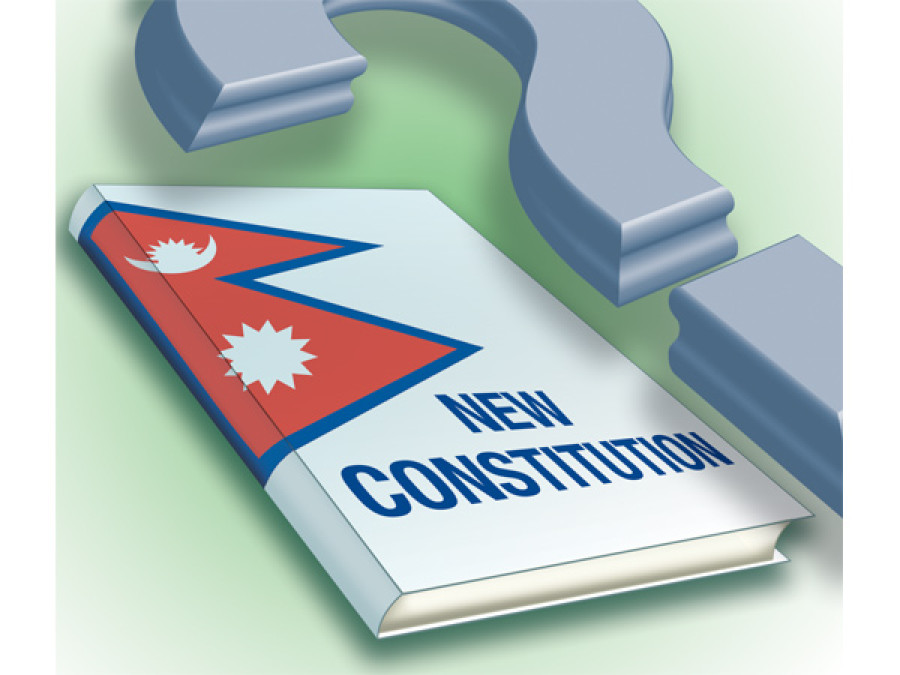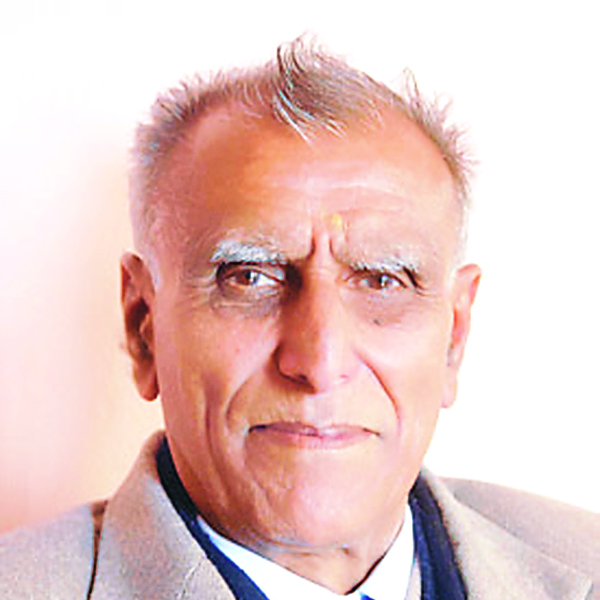Opinion
A good neighbour
Nepal is waiting for India to support its new constitution promulgated by people’s representatives
Ram Chandra Pokhrel
After the historic declaration of the new constitution by President Ram Baran Yadav amidst a roaring applause in the Constituent Assembly Hall—in New Baneshwor at 6 pm on September 20—the nation entered into a new era. The occasion was marked by celebrations across the country. Soon, congratulatory messages from around the world began pouring in. However, our southern neighbour, India merely ‘noted’ the promulgation of the Constitution of Nepal and stopped short of welcoming it.
The new constitution was not handed down to Nepalis by any supreme power or an emperor and later adopted by the House. Instead, it was an outcome of several several rounds of discussions within the Constitution Assembly (CA). The document evolved gradually and was revised many times before its promulgation. An overwhelming majority, ie, more than two-thirds of the CA elected by the people, approved it. The constitution, unlike the ones Nepal had in the past, was not merely a draft prepared by intellectuals or lawyers but a unique document written by the people’s representatives. It was an outcome of an eight-year long exercise within the CA; and the fruition of discussions even at the people’s level.
Southern support
India might have its reasons for its displeasure at Nepal’s historic achievement. But its reactions had never been anticipated by the Nepali people who were and still are shocked at the Bharatiya Janata Party’s reservations on the success of Nepal’s democratic movement. Furthermore, focusing only on the issue of the Tarai-Madhes and ignoring all the gains of the constitution in entirety does not correspond with the greatness of India.
It cannot rule out the fact that a small landlocked country like Nepal is home to over 100 ethnicities that speak more than 100 hundred languages. Even after the 1951 revolution in Nepal for democracy there was unrest in Tarai. Noting the incidents of lawlessness in the Tarai, the then Indian Prime Minister Jawaharlal Nehru wrote a letter to the Prime Minister of Nepal Matrika Prasad Koirila in this regard. Sent sometime in July 1952, Nehru wrote, “the Government of India cannot intervene in domestic conflicts between personalities or groups.” He further added, “we are only concerned with a stable ministry and Government being formed …(In Nepal).” So, since the very early days of democracy in Nepal, the Nepali people have found its southern neighbour to be in favour of its democratic movements and achievements. Therefore, India’s current displeasure on the happenings in Nepal could have a far reaching impact on Nepal-India relations and also affect the public sentiment in both the countries.
International and local support
First, it should be noted that India was well-informed about the coalition among the major parties in the second CA, which had an overwhelming majority along with the full support of the main opposition party. It provided an extremely conducive environment for writing and promulgating the new constitution. Second, the Prime Minister and Chairman of the Nepali Congress party, Sushil Koirala—who leads the current coalition government including the CPN-UML—was highly encouraged by the two visits of the Indian Prime Minister Narendra Modi to Nepal last year. Likewise, the northern neighbour, China’s view on the constitution-writing process was also quite positive. The response of theUN along with the US, the UK, the European Union, Japan and Saarc countries were no less positive. It clearly seemed as though the international community was not in a mood to delay the constitution-writing process.
Meanwhile, certain elements were conspiring to obstruct and completelyhalt the promulgation of the new constitution by any means possible. Such elements were covertly or overtly busy instigating people at all levels. But parties such as the Rastriya Prajatantra Party-Nepal displayed wisdom at the eleventh hour. They decided to record their reservation on certain points in the new constitution and chose to stay within the CA process. Despite their numerical strength inside and outside the House, the parties in the overnmentcontinuously urged the opposing parties for talks and dialogue. The top leaders of the Congress, UML and UCPN (Maoist)—Sushil Koirala, KP Oli and Prachanda—even issued a joint appeal for dialogue. The leaders continuously invited the disgruntled parties for informal talks too. But all those efforts were either ignored or rejected.
Moreover, CA members of the Congress, UML and UCPN (Maoist) elected from the Tarai-Madhes constituencies firmly stood for the promulgation of the new constitution in the hope of future amendments. They were confident about addressing the grievances of the Tarai-Madhes for equal opportunity and proportional representation through the new constitution. They never backed out despite attacks on their families living in the remote villages of the Tarai and protesters setting their houses on fire. Their signature on the constitution was another source of strength for the CA.
A new republic
Every member of the CA can now confidently say,“we now have a constitutionally guaranteed federal democratic republic system of governance not only at the centre but also at the provincial and local levels.” Republicianism and democracy will be the foundations of our political system.
In this context, the following conversation holds great meaning. After the conclusion of the (American)Constitutional Convention, Benjamin Franklin was asked, “what have you wrought?”
He answered, “… a republic, if you can keep it.”
After 68-years of struggle, the Nepali people have finally fulfilled the dream of many democratic movements, to write a people’s constitution. Still, the good wishes of India are of great importance to Nepal.
Pokhrel is a Member of Parliament




 24.89°C Kathmandu
24.89°C Kathmandu











